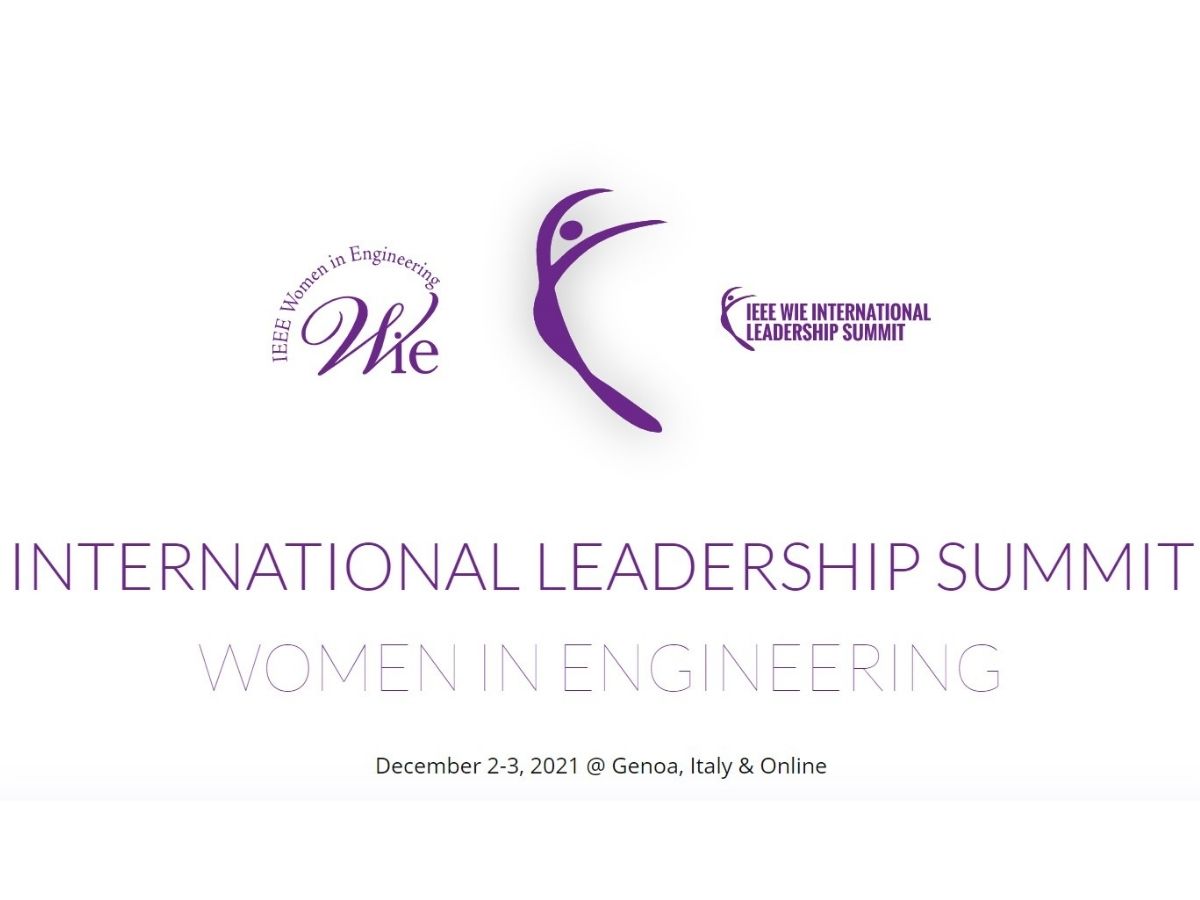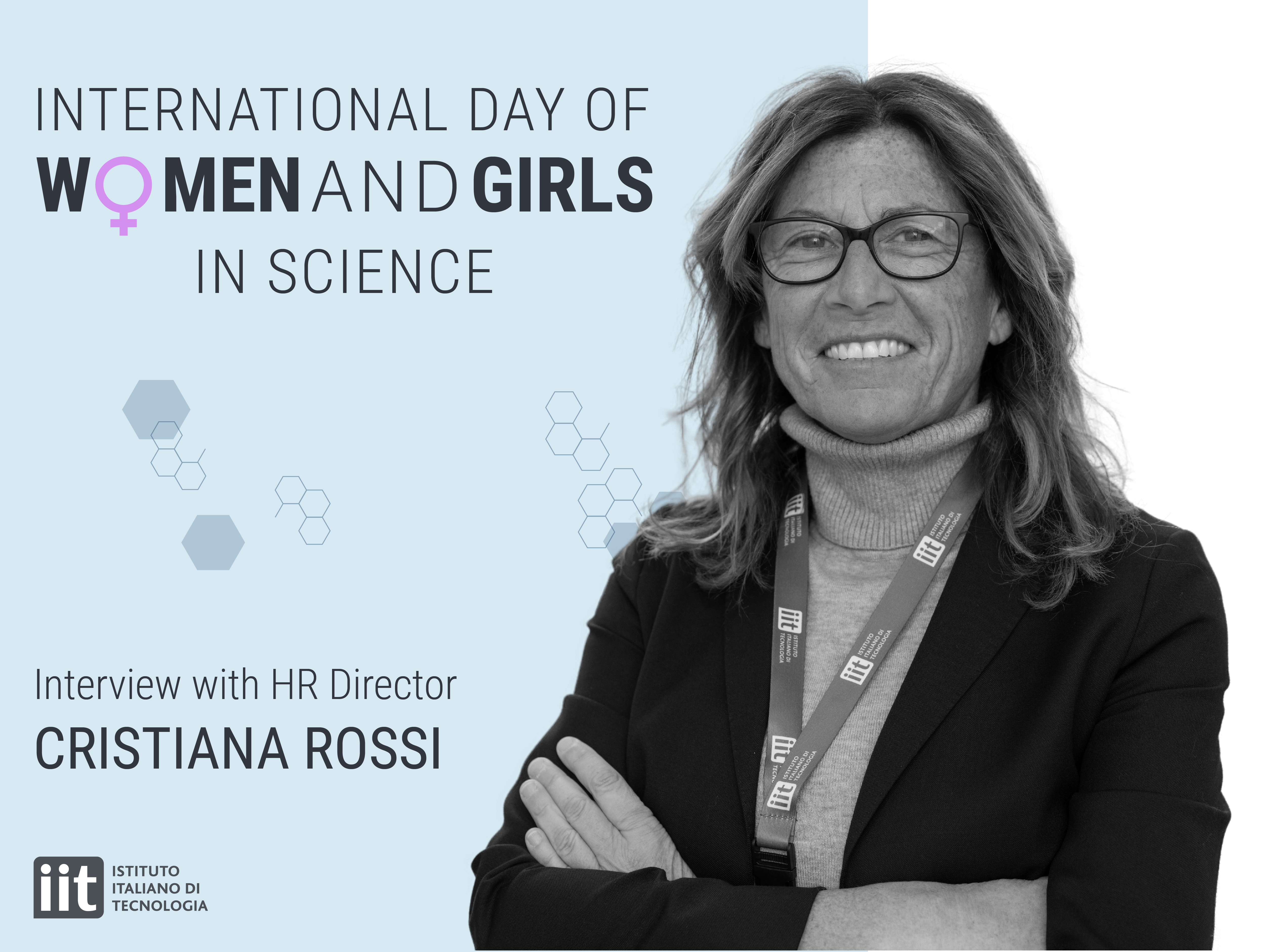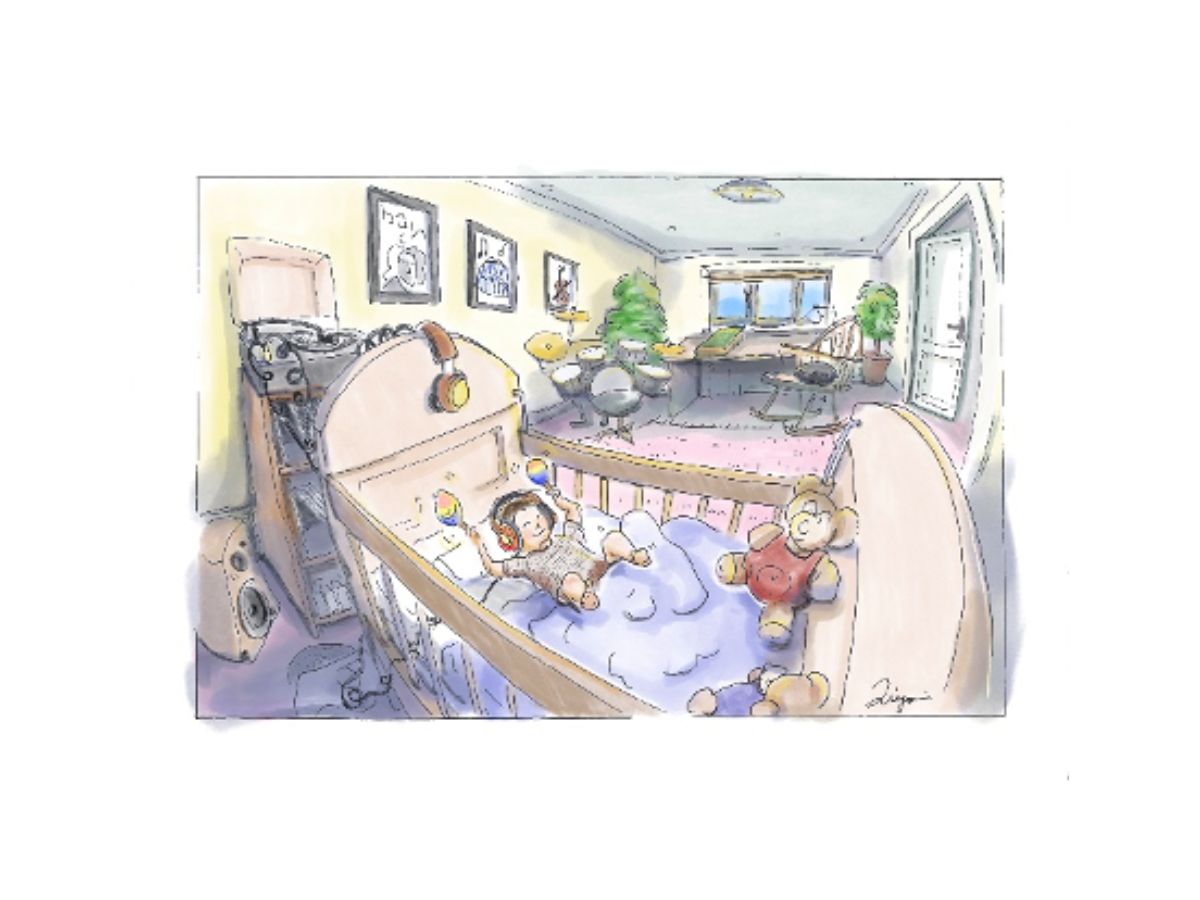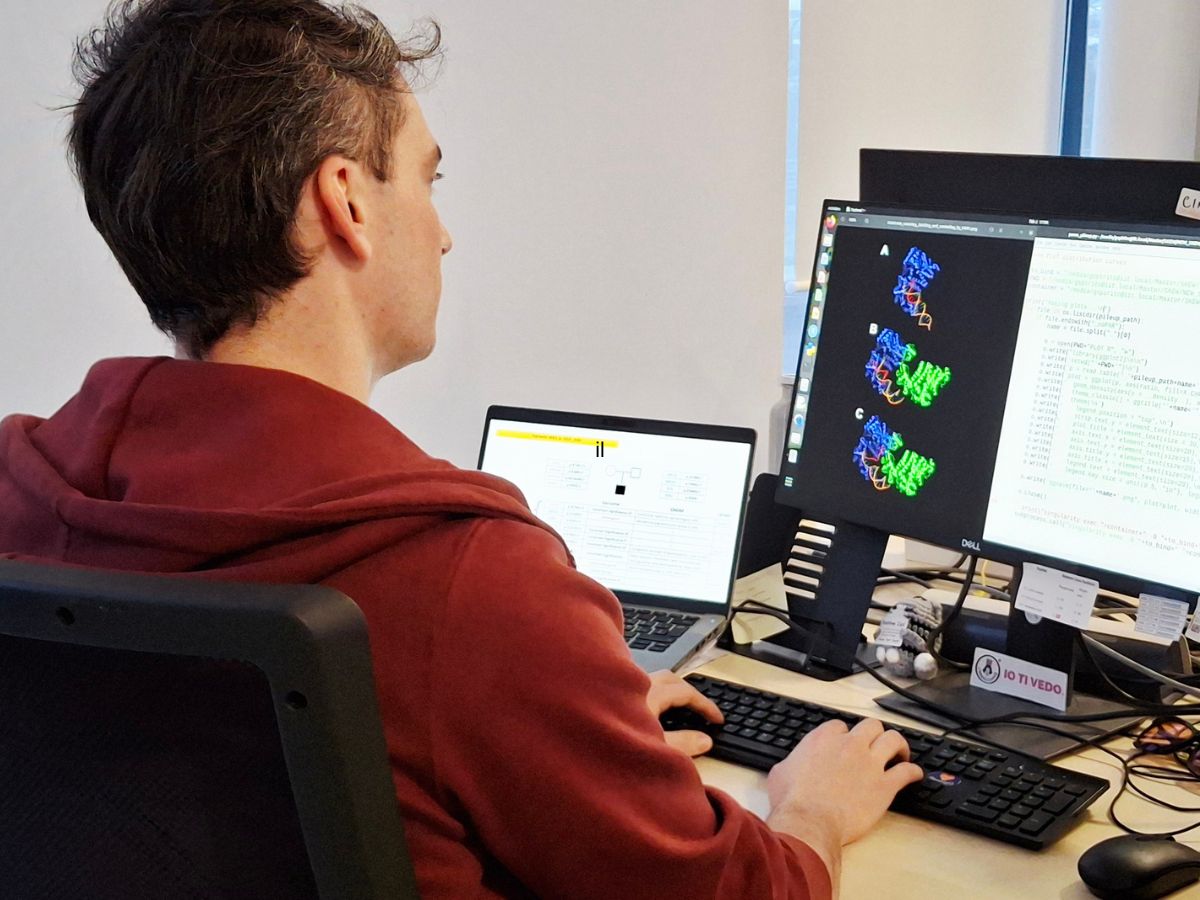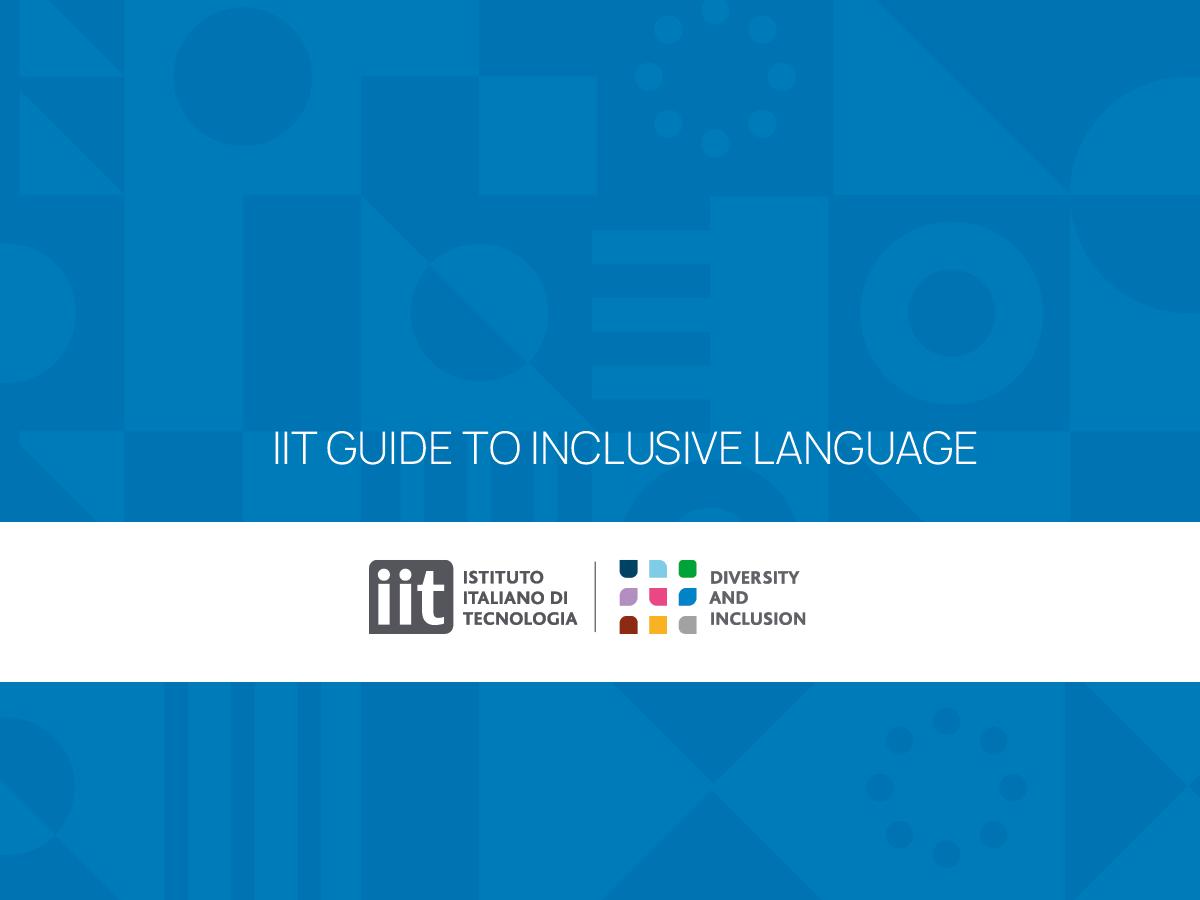2-3 December, the first IEEE WIE International Leadership Summit in Italy.
Last year, at the beginning of December, the online conference ‘Women in Engineering International Leadership Summit Virtual Event’ was held, organised by Marianna Semprini, IIT Clinical Research Team Leader, and Michela Chiappalone, Associate Professor at the University of Genoa, in cooperation with IEEE Women in Engineering (IEEE WIE) and supported by the IEEE WIE Affinity Group – Italy Section. An occasion that was highly successful but that, due to Covid, was presented as a provisional edition, while awaiting the opportunity for planning the in-person event and in a more extended form. At OpenTalk, Semprini and Chiappalone had revealed some previews of the 2021 edition, which is now just around the corner. In fact, the first Italian IEEE WIE International Leadership Summit will be held on 2 and 3 December in a hybrid version, giving the public the chance to attend the event in person, at the University of Genoa’s Villa Cambiaso on 2 December and at IIT’s Morego headquarters on 3 December, or by streaming. To consult the programme and register, visit the official website https://wieils-italy.eu/
The event, open to all, will offer the chance to look at empowerment themes in the ‘How I became a STEM scientist’ session, entrepreneurship at the ‘Role Models for Leadership and Innovation’ session, mentoring at the ‘From Mentee to Mentor’ session, parenting at the ‘Parents in Science’ session and mental health at the ‘Breaking the Stigma on Mental Health’ session, with debates, presentations and round tables held by national and international guests.
We interviewed Dajana Cassioli, Chair of IEEE WIE Affinity Group – Italy Section.
What is the mission of IEEE WIE Affinity Group – Italy Section?
Women In Engineering is a worldwide association with more than 20,000 members and over 900 Affinity groups in about 100 countries. We wanted to create a chapter in Italy and in 2016 I gathered the signatures necessary for authorisation from IEEE and this led to the official establishment of the first Italian Affinity Group of IEEE in 2017. Our mission is to organise various activities to encourage women’s participation in all areas of STEM subjects, even though we officially belong to IEEE and therefore to the ‘engineering’ sphere. We like the idea of being truly inclusive, particularly when it comes to attracting interested women and men to our debates, conferences and all the occasions, both in-person and online, in which we are directly involved or are providing support for the organisers, as in the case of the event on 2-3 December. More recently, we have been working hard to reach an additional very young audience, presenting activities for primary and nursery schools, with the specific aim of breaking down gender stereotypes. We will soon begin with a new project named IRIS, by means of which we will collect examples from primary schools that have undertaken actions and projects for educating girls and boys on gender equality, particularly with regard to the long-term goal of promoting girls’ involvement in science and technology subjects.
Do you have a formal internal statute?
We have drawn up a ‘Charter of Commitments’ with 12 objectives, signed by all the associations with which we have active partnerships throughout the country, in particular AICA, AEIT and WWE. Every year the charter is updated according to new priorities and this year the update is based on a discussion that we had with IEEE and WIE Europe representatives at our annual meeting in September, bringing the charter up to European standards. Each target has a specific performance indicator that makes it possible to assess the level achieved. This year we won three awards: Best Chapter Award of the IEEE Italy Section, Honourable Mention in the 2021 WIE Affinity Group of the Year Award and Certificate of Appreciation for Notable Services and Contributions towards the advancement of IEEE and the Engineering Professions which was awarded to me personally, but which I share with the whole team.
What is the importance of an organisation such as yours?
Creating a community and sharing problems or issues within a group, in this case an affinity group, are very important for so-called minorities. We began with 50 members, both men and women, and today there are about 200. An interesting fact is that 30% of the members of WIE International are men. We periodically hold meetings with a large number of participants and what I have seen is a growing urgency to discuss questions frankly and openly. The other aspect, no less important, of being a large group and gradually becoming a community, is the visibility and authority that we progressively acquire. Visibility for organisations such as the IEEE WIE Italy Section is fundamental, because it means no longer being inconspicuous, and being able to play a participatory role. We are developing an increasingly effective structure and for this reason we hope to grow further. I would also like to underline that it is possible to work in cooperation with us even without signing up: https://site.ieee.org/italy-wie/activities/get-involved/
Are you proud to be a female engineer and President of an organisation that brings together such professionals from all over Italy?
At the beginning of this process, when I was younger, my principal emotion was the pride of having succeeded in becoming an engineer as a woman. However, over the years I have realised that having to prove that I am worth exactly the same or even more than a man, succeeding in reaching the same results, is exhausting and is something that should not be my responsibility. This attitude can still be seen today in the choice of many female engineers in Italy, who prefer to be called using the masculine term ‘ingegnere’ rather than by the feminine version ‘ingegnera’. The issue is semantic, quite apart from the lexical aspects. Over the years, I have realised that we do not have to conform to something, in this case the classic male model of an engineer, in order to feel better and stronger. On the contrary, we should do what we want in our own way, whether it be (female) engineer, chemist, historian, or any other profession, and we should have the chance of working with our (male) colleagues as equals, because that is the fundamental aspect. Without going too deeply into philosophical areas, diversity is good, because it means that everyone can bring their experience and background to a community. There is no single way of being involved in engineering and above all, there is no preferred way of being an engineer, obviously excepting questions of merit. On the other hand, being the President of IEEE WIE Italy Section gives me great pride, because for me it means giving voice and shape to shared needs and being able to offer an alternative approach for the youngest people, both female and male, by means of the various activities that we offer.

